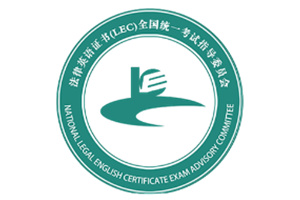The art of the automated reply in an increasingly wired world
“I will be back in the office [in two weeks] and have limited Wi-Fi connection in the meantime.” It is safe to assume that readers of this column are familiar with something like this message (which, like all the others cited below, comes from real life). As with all aspects of office culture, the autoreply has evolved over time – and more quickly in the past 18 plague months. Good etiquette has not always kept up.
The precursor of the electronic “out of office” is sometimes found in Mediterranean countries, where a handwritten note taped to a shop front announces to the world: “Closed for August, back in September”. The digital autoreply was initially a quirk of Microsoft, a software giant, dating back to the company’s Xenix email system of the late 1980s, before bleeding into the mainstream in the following two decades.
In those early days, responses tended to be terse and to the point. That style persists to this day, especially in the higher echelons of corporate hierarchies. C-suite executives’ autoreplies seldom feature jokes or emojis – if, that is, they are set up in the first place. A chief executive does not have to explain her or his absence or lack of prompt response, except possibly to the board (which will invariably have been informed of the boss’s movements).
Lower down the pecking order, however, people increasingly try to put their personal mark on their autoreplies. And if this stand-in Bartleby’s inbox is a guide, creativity has burgeoned in the age of lockdowns and remote work. Some try to be witty (“I will have limited enthusiasm for access to email”). Others share (“I am out of the office getting married!”). Others still plump for exoticism (“Please note that I am out travelling in a remote area in Greenland and will have no internet or phone connection for the majority of the period”).
Often, the autoreply involves people beyond the sender and recipient. Your columnist has on numerous occasions been named as the person to whom addressees of her colleagues’ autoreplies ought to direct queries. That can have long-running consequences. Public-relations types still refuse to remove her email address from their mailing lists even though she has patiently, and repeatedly, explained that climate change is not her beat so there is no point in sending her daily press releases about agroforestry in Kenya. Occasionally, autoreplies turn into a cyberspace version of a treasure hunt. During the summer, Bartleby’s email address was given out while she herself was on holiday so the recipient ended up being redirected again.
Such foibles notwithstanding, most office workers have no problem with the “out of office”. A survey of 1,000 people conducted in 2015 by Microsoft found that most respondents liked the practice. That is partly because setting it can mark the beginning of a holiday (which it did for 77% of the surveyed). But 60% also confessed to enjoying a jolly reply received from others.
Still, clear dos and don’ts exist. As an “out of office” connoisseur (and victim), Bartleby recommends being straightforward and informative. State the dates when you are away. If the period of absence is longer than a typical holiday, a word of explanation may be in order (jury duty, parental leave, sabbatical).
The message itself does not have to be a labour of love. Oversharing is awkward. “I’m on PTO” (paid time off) has been common in the Corona-era despite the inelegance of reminding strangers that you received compensation for being unavailable. Humble-brags or an air of self-importance strike a false note.
Trying to be funny often falls flat on its face. Including suggestions to follow you on Twitter or emojis of an umbrella on a beach are best avoided. Three in ten respondents to Microsoft’s survey reported succumbing to sentiments of envy and fear of missing out upon being notified that others enjoyed tropical vacations. Veering off-topic, whether by including personal confessions or quotes from Muhammad Ali, shows not erudition or finesse but a distracted mind given to rambling. It is like having water on the knee – the best things found in the wrong places.
Being aware people want your attention before you return to your post can be instrumental in the management of any other large organisation. But if you are surfing in Maui, attending a conference, running an ultra-marathon in the Mojave Desert, writing a novel, or taking time off to paint your mother’s garage, no one really needs to know the details.















